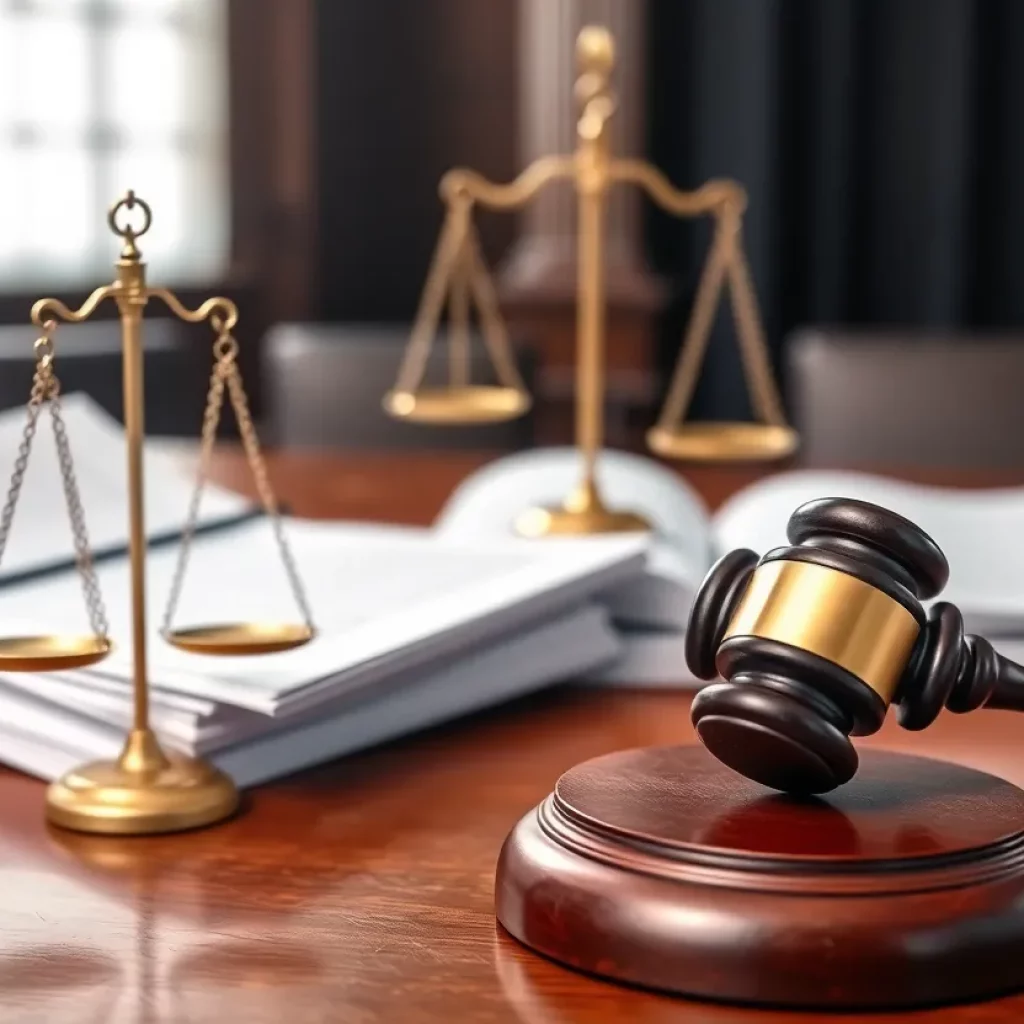News Summary
The U.S. Supreme Court’s ruling in ‘Medical Marijuana, Inc. v. Horn’ significantly alters civil RICO litigation by allowing individuals suffering personal injuries to recover economic damages. Justice Amy Coney Barrett led the majority opinion, dismantling previous restrictions and paving the way for more plaintiffs to pursue claims linked to business losses. This decision may provoke a rise in RICO lawsuits, despite complexities in proving claims. Legal experts anticipate innovative strategies emerging as the ruling encourages lawyers to explore new avenues for economic recovery.
Supreme Court’s Landmark Ruling Paves Way for New RICO Claims
The U.S. Supreme Court recently delivered a significant ruling in the case of Medical Marijuana, Inc. v. Horn, forever altering the landscape of civil RICO litigation. In a 5-4 decision, the court’s majority revealed that individuals suffering from personal injury may now have a pathway to recover economic damages for business losses linked to those injuries. This is a monumental shift encouraging more plaintiffs to explore the potential of civil RICO, a statute traditionally known for punishing organized crime.
Justice Barrett Leads the Charge
Justice Amy Coney Barrett articulated the majority opinion, standing firmly against the “antecedent-personal-injury bar” that was recognized in several circuits. Prior to this ruling, numerous lower courts, including the 2nd U.S. Circuit Court of Appeals, had favored a restrictive interpretation that prevented recovery of business damages flowing from personal injuries. The Supreme Court’s decision effectively dismantles that barrier, allowing plaintiffs to recover for damages related to economic harm.
The Case That Stirred Controversy
The case arose out of an incident involving truck driver Douglas Horn, who lost his job due to a failed drug test that returned a positive result for THC, a substance found in a CBD product he believed to be THC-free. This unfortunate event triggered Horn to seek damages not only for the personal injury he suffered but also for the economic losses stemming from the job loss.
Complex Pathway to Recovery
Legal experts emphasize that while this decision opens doors for claims related to economic harm caused by personal injuries, the pathway remains fraught with complexity. Plaintiffs must meet specific criteria under civil RICO, including proving a “pattern of racketeering activity” and a direct correlation between their alleged injuries and the defendant’s actions. Achieving this level of legal precision is no small feat and continues to complicate the pursuit of such claims.
Increase in RICO Litigation Likely
Zachary A. Cunha, a former U.S. attorney, deems the ruling appealing due to the robust remedies available in RICO lawsuits, such as treble damages, court costs, and attorney fees. The potential for significantly larger monetary awards may incentivize more intrepid attorneys to advance creative arguments. Cunha does express caution, noting that despite this opening, the ruling is unlikely to create a deluge of RICO lawsuits, as the burden of proof remains high.
Boston attorney Callan G. Stein predicts that the Supreme Court’s ruling may usher in a new era of innovative legal strategies, enticing plaintiffs to leverage RICO’s reach in non-traditional scenarios—primarily in instances where personal injury leads to business losses.
Dissenting Opinions Raise Concerns
The split decision did not come without contention, as Chief Justice John G. Roberts Jr. and three other justices dissented. The dissenters cautioned that the ruling could engender confusion over the recoverability of damages under civil RICO, complicating future litigation. Nonetheless, Barrett’s majority opinion reiterated that RICO does not provide a blanket coverage for all types of harm; rather, it cleaves personal injury damages from business-related losses, solidifying the legal framework.
The Future of RICO Litigation
The implications of the Horn ruling are profound, signaling a potential shift in how plaintiffs will approach civil RICO cases, particularly in contexts where economic harm follows a personal injury incident. While establishing causation remains a formidable hurdle, the ruling undeniably creates a new avenue for those seeking justice and financial reparations. Legal experts will be watching closely to see how this dynamic influences the trajectory of future RICO claims.
As more plaintiffs learn of this new pathway for economic recovery, the legal community gears up for a potential rise in RICO litigation, transforming the intersection of personal injury and economic loss into a battleground that both plaintiffs and defendants will navigate with calculated caution.
Deeper Dive: News & Info About This Topic
HERE Resources
Construction Company Faces Legal Action for Fraudulent Claims in West Virginia
Supreme Court Ruling Strengthens RICO Claims for Lawyers in Cannabis Sector
Understanding Personal Injury Claims: Insights for Albany Residents
Supreme Court Ruling Expands RICO for Lawyers
Tragedy in Arcadia: Lawyer Shot by Brother
Tragedy Strikes as Lawyer is Shot Dead in Phoenix
Charleston Prepares for Winter Storm and Snowfall
Traffic Woes in Charleston, SC Due to Multi-Vehicle Accidents
Additional Resources
- Massachusetts Lawyers Weekly
- Wikipedia: Racketeer Influenced and Corrupt Organizations Act
- SCOTUS Blog: Medical Marijuana, Inc. v. Horn
- Encyclopedia Britannica: Racketeer Influenced and Corrupt Organizations Act
- Google Search: RICO litigation
Author: STAFF HERE CHARLESTON
The CHARLESTON STAFF WRITER represents the experienced team at HEREcharleston.com, your go-to source for actionable local news and information in Charleston, Charleston County, and beyond. Specializing in "news you can use," we cover essential topics like product reviews for personal and business needs, local business directories, politics, real estate trends, neighborhood insights, and state news affecting the area—with deep expertise drawn from years of dedicated reporting and strong community input, including local press releases and business updates. We deliver top reporting on high-value events such as the Spoleto Festival USA, Charleston Wine + Food Festival, and the MOJA Festival. Our coverage extends to key organizations like the Charleston Metro Chamber of Commerce and the Charleston Museum, plus leading businesses in tourism and maritime industries that power the local economy such as South Carolina Ports Authority and the Charleston Visitor Center. As part of the broader HERE network, including HEREaiken.com, HEREbeaufort.com, HEREchapin.com, HEREcharleston.com, HEREclinton.com, HEREcolumbia.com, HEREgeorgetown.com, HEREgreenwood.com, HEREgreenville.com, HEREhiltonhead.com, HEREirmo.com, HEREmyrtlebeach.com, HEREnewberry.com, HERErockhill.com, HEREspartanburg.com, HEREaustin.com, HEREcollegestation.com, HEREdallas.com, HEREhouston.com, and HEREsanantonio.com, we provide comprehensive, credible insights into South Carolina's dynamic landscape.










